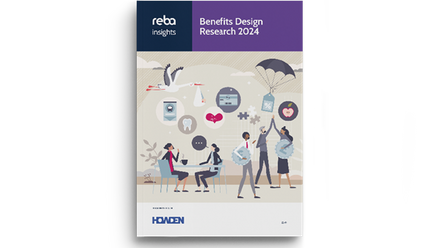How to start supporting your employees’ financial wellbeing

Did you know?
Employees with financial worries are 8.8 times more likely to have sleepless nights, 7.6 times more likely not to finish their daily tasks and almost five times more likely to be depressed, according to Salary Finance’s Employer’s Guide to Financial Wellbeing 2018-19. These alarming statistics demonstrate just how important financial wellbeing is, and how much of an impact it can have in the workplace.
It’s easy to see how the resulting stresses and strains of poor financial wellbeing can spill over into the workplace. This is why it’s crucial that businesses develop a strong financial wellbeing strategy that fosters a happy, healthy and productive workforce. Close Brothers’ Financial Wellbeing Index, 2019 shows that, financial wellbeing strategies have been proven to enhance businesses’ productivity, retention and even recruitment.
So, to provide you with a helping hand, we’ve teamed up with one of our wellbeing providers, Neyber, to show you how to effectively support your employees’ financial wellbeing.
Start a conversation
When it comes to implementing any kind of business change, it all starts with culture. To have a successful financial wellbeing programme, financial wellbeing needs to be on your employees’ radars – it needs to be a topic of conversation.
Money is often a taboo subject in the workplace and people can feel uncomfortable when anything to do with their personal finances is put on the agenda. However, it’s important that employees consider their financial health and how they can improve it. When employees are more open and honest about their finances, they will be more likely to take action to improve their financial wellbeing. It’s therefore crucial that you, as a business, remove the stigma surrounding money and start a conversation about financial wellbeing.
Whether you send out communications, run internal events or bring it up as a discussion point in meetings, by making employees aware of the importance of financial wellbeing, they will be more likely to seek advice and guidance when they need it.
Measure financial health
As with anything, you need to work out the problem before providing the solution, so a good starting point is to measure your employees’ financial health. By capturing this information, you can easily spot trends and distinguish key areas of concern that you can address with your financial wellbeing strategy.
For example, many of your younger workers might be struggling with the various financial options available to them due to a lack of financial education at school. Whereas for older workers, their worries may be more focused towards saving for retirement. It’s therefore important to take a pulse of your employees’ financial health on a regular basis so you can ensure you’re providing relevant support.
It’s also useful for your employees to be aware of their own financial health. Neyber provide a quick, easy and free Financial Health Check which is made up of just 10 simple questions. Once an employee has completed the questions, they get a Financial Health Score, can see how they compare with others and get tips on how to improve it.
Provide financial education
First and foremost, education is key. Managing money can be overwhelming at times, but when employees are well-informed, they can make better decisions about their money and manage their finances easier.
A lot of worry and stress around money can stem from a lack of awareness, so financial education can fill in any gaps in knowledge and help employees solve the troubles or queries they may have.
Whether an employee wants to learn how to manage debt, take out a loan, save for a mortgage or they simply want a better relationship with money, financial education will teach employees tips, tricks and habits they can use for the rest of their lives.
It doesn’t have to be prescriptive either. You can give employees the option to dip into any area of information that is relevant to them. As we know, there is no one-size-fits-all solution, so make sure you provide education on a variety of topics to cater for all of your employees’ needs.
Offer access to financial wellbeing services
When it comes to money advice, tools and services, always turn to the experts in the financial field. There are plenty of financial products out there, but not all employees will know they exist or know how to access them. As part of your financial wellbeing strategy, you can deliver these services direct to your employees.
This is where a financial wellbeing benefits providers come in. They can deliver a range of services designed to give your employees the very best support, delivered right to your workplace.
“There are hundreds of forward-thinking companies already tackling financial health, with early adopters like Royal Mail, DHL, Anglian Water and London City Airport, already benefiting from lower absenteeism rates and logged EAP calls for financial stress, as well as better employee engagement. One of our clients for example saw a 50% drop in reported accidents in the workplace.” says David Walker, Head of Commercial at Neyber.
“Their employees also report feeling more financially confident, with those taking out a debt consolidation product saving on average £100 a month on debt repayment and one employee citing a £600 a month saving.”
Give inclusive support
Above all, your financial wellbeing approach should be inclusive. Any employee in your business should be able to access a product, service or information that will help them regardless of age, income, location and financial position.
You should also consider the types of channels you use for your financial wellbeing support because this will have an impact on the inclusivity of your financial wellbeing programme. Are your employees all office-based? Do they have access to their emails during the day? Do they work remotely? All of these components will have an effect. Online content is usually optimal because it means anyone can access your services whenever they need to, but it’s always good to keep in mind that some employees might prefer to seek advice over the phone or in person.
This article is provided by peoplevalue.
In partnership with peoplevalue – The Employee Engagement Company
We are a leading provider of employee reward&recognition, benefits delivery&wellbeing solutions.







